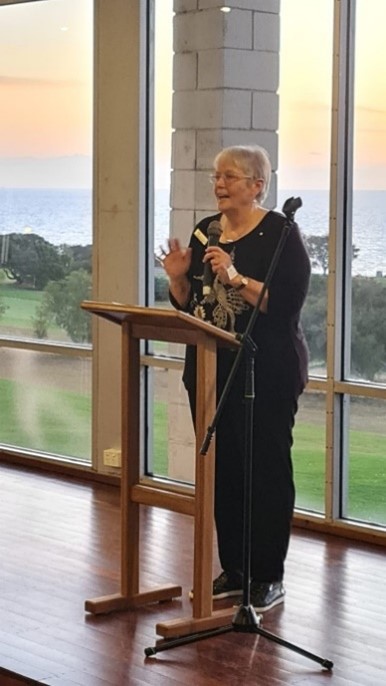Energy transition challenges and opportunities in Western Australia
ATSE's Western Australia Division Annual End of Year Event welcomed over 70 members to celebrate an excellent year.
At the Australian Academy of Technological Sciences and Engineering’s Western Australia Division Annual End of Year Event, we welcomed over 70 members to celebrate an excellent year.
The event featured a keynote address from the Director of the Institute for Energy Transition at Curtin University, Professor Peta Ashworth OAM, and engaging discussions centred around challenges and opportunities for an energy transition in Western Australia.
The discussions emphasised the state's potential to lead the world in decarbonising the economy.

In her keynote, Professor Ashworth outlined six challenges we must overcome to achieve a successful energy transition in Western Australia.
Scale: With Australia targeting 32 GW of renewable energy capacity, communication about the scale of this transition becomes crucial. Professor Ashworth highlighted the need to convey the magnitude of the changes that lie ahead.
Supply: Streamlining grid connection and new transmission is vital, yet challenges arise due to strong international demand. Efficiency in supply chain management is crucial.
Storage: Concerns about the ethical supply of cobalt and silicon highlight the importance of sustainable practices in obtaining resources. Professor Ashworth raised questions about the potential role of new sodium-ion batteries in the future.
Skills: The impending skill shortages in electricians and engineering professionals by 2030 were discussed, emphasising the role of ATSE in addressing this challenge and ensuring a skilled workforce for the transition.
Social: Professor Ashworth emphasised the significance of public acceptance, especially in regional communities that often bear the brunt of energy transition-related changes. Addressing the imbalance between the benefits reaped by cities and the burdens faced by regional communities is crucial.
Speed: The urgency of the transition requires strong leadership to expedite the necessary processes. Professor Ashworth stressed the need for decisive action to meet the ambitious targets.
Professor Ashworth concluded her keynote by highlighting the importance of facilitating large consultation processes across Australia. She emphasised the need for detailed discussions on trade-offs and solutions to the biggest transition challenges we face.
The event not only showcased the expertise of ATSE’s Fellows but incorporated the perspectives of early career scientists and PhDs, providing a holistic view of the challenges and opportunities in transitioning to a renewable energy future.
As Professor Ashworth aptly put it, such collaborative efforts will guide Australia toward a shared vision for a sustainable and energy-efficient future.